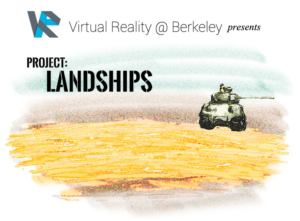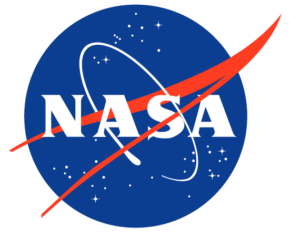Author: Anna Sackmann
Virtual Reality for Cal Day
The Kresge Engineering Library will be one of the host sites for VR @ Berkeley, a student group that brings virtual reality to the campus community. By working with industry and UC-Berkeley researchers, VR @ Berkeley makes virtual reality an accessible experience. Each year, members of the group focus on a wide range of projects that bend the intersection between our physical realities and the virtual. Their work spans many applications including: changing the way we read and interact with textbooks, allowing medical workers in the field communicate with doctors in a more intuitive manner, and a virtual experience of our iconic, 61 bell Campanile.

During Cal Day, the Kresge Engineering Library will be hosting Project Landships, a multiplayer tank combat simulator. Players can work together as a crew to aim, shoot, drive, and spot. The experience emulates a WWII Sherman Firefly Tank.
Check out other VR @ Berkeley Projects on Cal Day at the following locations:
1. Kresge Engineering Library
2. ESS Patio
3. Jacobs Hall
4. Sproul Plaza
5. The House (Bancroft)
6. Moffitt Library
Global Engineering Academic Challenge
It’s time again for the Global Engineering Academic Challenge! Starting today, Monday, October 10th, Elsevier will post a challenge question each Monday for the next 5 Mondays (5 questions total). Complete this interdisciplinary challenge with your instructors and peers by solving problem-sets based built around 5 transdisciplinary themes including Future of Energy, Future of Making, Future of Medicine.
Each week, the winner with the highest points will receive $100 to Amazon. The first place grand prize is an Apple iPad and the second place prize is a set of Sonos speakers.
Visit the Engineering Academic Challenge to begin!
DMPTool Updates for August 2016
The crew over at the University of California Curation Center (UC3) and the California Digital Library are working hard to continue to bring big updates to the DMPTool. First off, they’ve added new data management plan templates for the Department of Transportation and NASA. They’re busy working on adding DOD (Department of Defense) and NIJ (National Institute of Justice) templates, but if you’d like another template added, please let them know and send a message here.


Additionally, they’re moving forward to create Machine-actionable DMPs. This means that institutions will be able to better manage their data; DMPs will be data mineable; and researchers can better discover data. Read more about the benefits of Machine-actionable DMPs at the DMPTool blog.
New Resource: Corrosion Database
Springer Materials recently announced the launch of their new Corrosion Database. The Corrosion Database lives in Springer Materials and was compiled from various data and literature from the National Institute of Standards and Technology (NIST). The database contains over 24,000 uniques records of corrosion rates/ratings and can be searched by material, environment, or both. Results are given by corrosion rating in order to find the most (or least resistant) for any given application. For example, the database provides data on how seawater corrodes 164 different types of steel and the rate of corrosion.

Users can also download citations from the database in .bib, .EndNote, or .ris file formats.
Visit the SpringerMaterials database to begin using the new Corrosion Database.
Data Visualization Workshop: Thursday, July 7th, 12:00 pm
A well-designed figure can have a huge impact on the communication of research results. This workshop will introduce key principles and resources for visualizing data:
- Choosing when to use a visualization
- Selecting the best visualization type for your data
- Choosing design elements that increase clarity and impact
- Avoiding visualization issues that obscure or distort data
- Finding tools for generating visualizations
Date: Thursday, July 7
Time: 12:00 – 1:00
Location: Bioscience Library Training Room, 2101 VLSB (inside the library)
Add this workshop to your bCal
Presenters:
- Anna Sackmann, Science Data and Engineering Librarian
- Becky Miller, Environmental Sciences and Natural Resources Librarian
- Elliott Smith, Emerging Technologies Librarian
Open to all; no registration is required. Please forward to interested colleagues.
Questions? Please contact esmith@berkeley.edu
Big Changes for the DMPTool, but first, a little downtime.
During the month of May, project developers for the DMPTool and DMPOnline (the UK’s version) began combining documentation to create the DMPRoadmap. Coming next year, the DMPTool and DMPOnline will merge into one Data Management Plan service that can be used internationally and that combines the best features of the current DMPTool and DMPOnline. You can follow their progress via their GitHub Repository: DMPRoadmap.
Stay tuned for updates. In the meantime, the DMPTool will experience brief downtime for mini-maintenance on Wednesday, June 8 2016 from 4:00 – 4:30 (PST).
DMPTool Downtime Wednesday May 4th
The DMPTool will be unavailable on Wednesday, May 4th 2016 from 3:00 – 4:00 (PST). During this period users will not be able to log in or have access to their work. We apologize for the inconvenience.
For questions about the DMPTool or other data management tools and services available to UC Berkeley researchers, please see our Research Data Management page or contact researchdata@berkeley.edu.
The Materials Project

The Materials Project provides open web-based access to computed information on known and predicted materials as well as powerful analysis tools to inspire and design novel materials. Through computational modeling and supercomputing, the Materials Project allows the user to assess how different atoms and molecules interact with each other. The Materials Explorer is the core tool, or app, through which users can query all of the data in the materials compound database through an interactive Periodic Table of Elements. With 66,140 computed compounds, users discover a number of material properties including compound formation energy, stability, bandgap, density, volume, and more. This app, along with seven others (including the crystal toolkit, structure predictor, and the battery explorer) allows researchers to compute the properties of compounds before materials are synthesized in a lab, all of which save money, time, and guesswork.
The Materials Project was founded by two current UC-Berkeley Materials Science and Engineering professors, Dr. Kristin Persson and Dr. Gerbrand Ceder. The Project is supported by the US Department of Energy, Lawrence Berkeley National Lab, MIT, and the Battery Materials Research Program. For more information on collaborators, visit About the Materials Project.
The Materials Project

The Materials Project provides open web-based access to computed information on known and predicted materials as well as powerful analysis tools to inspire and design novel materials. Through computational modeling and supercomputing, the Materials Project allows the user to assess how different atoms and molecules interact with each other. The Materials Explorer is the core tool, or app, through which users can query all of the data in the materials compound database through an interactive Periodic Table of Elements. With 66,140 computed compounds, users discover a number of material properties including compound formation energy, stability, bandgap, density, volume, and more. This app, along with seven others (including the crystal toolkit, structure predictor, and the battery explorer) allows researchers to compute the properties of compounds before materials are synthesized in a lab, all of which save money, time, and guesswork.
The Materials Project was founded by two current UC-Berkeley Materials Science and Engineering professors, Dr. Kristin Persson and Dr. Gerbrand Ceder. The Project is supported by the US Department of Energy, Lawrence Berkeley National Lab, MIT, and the Battery Materials Research Program. For more information on collaborators, visit About the Materials Project.
Love Your Data Week, Feb 8th – 12th

Love Your Data Week is a nationwide campaign designed to raise awareness about research data management, sharing, and preservation. Activities and events will be held from February 8th – 12th to promote data management awareness.
Follow the conversation at #LYD16.
Two data management events will be held in the library during this week.
1. Love Your Data Pop Up in BIDS (Doe 190) Tuesday, February 9th from 1-3 pm
Stop by the Pop Up to learn how to create a data portfolio to showcase your skills, get free access to unlimited cloud storage, or play a round of Data Bingo – you might win a prize! Also available at the Pop Up: one-on-one data advisory services, help finding data for your next project, recommendations for analysis and tools, and much more!
2. Out of the Archives, Into your Laptop Workshop (Doe 308A) Friday, February 12th from 2-3:30 pm
This workshop will focus on capturing visual and manuscript materials, but will be useful for any researcher collecting research materials from archives. Topics will include smart capture workflows, preserving and moving metadata, copyright, and platforms for managing and organizing your research data, The workshop will be co-presented by Mary Elings (Bancroft Library), Lynn Cunningham and Jason Hosford (Art History Visual Resources Center), and Jamie Wittenberg and Camille Villa (Research IT).
This campaign is a partnership between the Library, Research Data Management, Research IT, bConnected, Bancroft, Digital Humanities, ETS, and BIDS.
Posted by Anna Sackmann, Science Data & Engineering Librarian; content by Jamie Wittenberg, Research Data Management Service Design Analyst